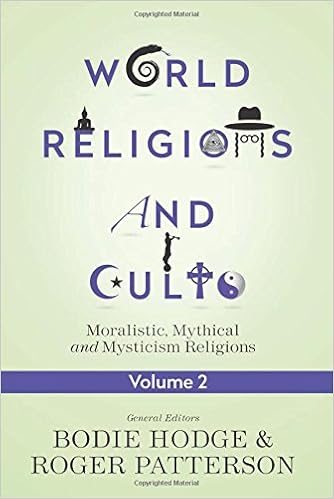Theism
Definition
Theism includes any philosophy which claims that some kind of God or gods exist.
Keywords: Theism, Atheism, Philosophy, True, God, Deductive.
Veracity
Theistic claims are true .
Proof
Either there are no gods, and therefore atheistic claims are true, or there is at least one god, and therefore theistic claims are true.
Premise 1: If atheistic claims are false, then theistic claims are true.
Premise 2: Atheistic claims are false.
Conclusion: Therefore, theistic claims are true.
Since atheistic claims are deductively false, theistic claims are therefore deductively true.

Gilbert Guttlebocker, Defender of Dragons
Riveting, yet absurd; romantic, yet innocent; Gilbert Guttlebocker, Defender of Dragons is a little Roald Dahl, a little Harry Potter, and a little Chronicles of Narnia, all rolled into one. Timothy McCabe collaborates with the great Benedict Ballyhoot to bring you the novel of the century!

In Printed Form
Along with numerous other authors including Don Landis, Bodie Hodge and Roger Patterson, Timothy McCabe contributes analyses of various world religions and cults in this volume from Master Books.
Other Writings
"What kind of god would give people cancer, aids, epilepsy, emphysema, diarrhea, or any of the other medical problems people get? Why worship a god that isn't good, even if he does exist?"
Interestingly enough, in presupposing that there is such a thing as "good", we must acknowledge that there is some kind of "rule of behavior" that transcends individual humans. However, if there is no good God, then such a transcendent rule of behavior cannot exist. In other words, the only reason we can identify things as being good is because there is a good God who is the very measure of goodness.
Continue reading...
"I read these two verses and I think the Christian god cannot make up their mind the two verses are Ezek 24:14 and Jonah 3:10. Can you refute this?"
Here are the scriptures in question. Ezekiel 24:14 "I, the LORD, have spoken; it is coming and I will act. I will not relent, and I will not pity and I will not be sorry; according to your ways and according to your deeds I will judge you," declares the Lord GOD.'" Jonah 3:10 When God saw their deeds, that they turned from their wicked way, then God relented concerning the calamity which He had declared He would bring upon them. And He did not do it.
Continue reading...
"While holding rattlesnakes and speaking in tongues, have you ever been bitten? Does it hurt? "
Mark 16:17-18 "These signs will accompany those who have believed: in My name they will cast out demons, they will speak with new tongues; they will pick up serpents, and if they drink any deadly poison, it will not hurt them; they will lay hands on the sick, and they will recover." My son had a snake once, but it was a boa, not a rattler. I picked it up many times and was not harmed. I also studied Spanish in school, but I was never very good at it.
Continue reading...